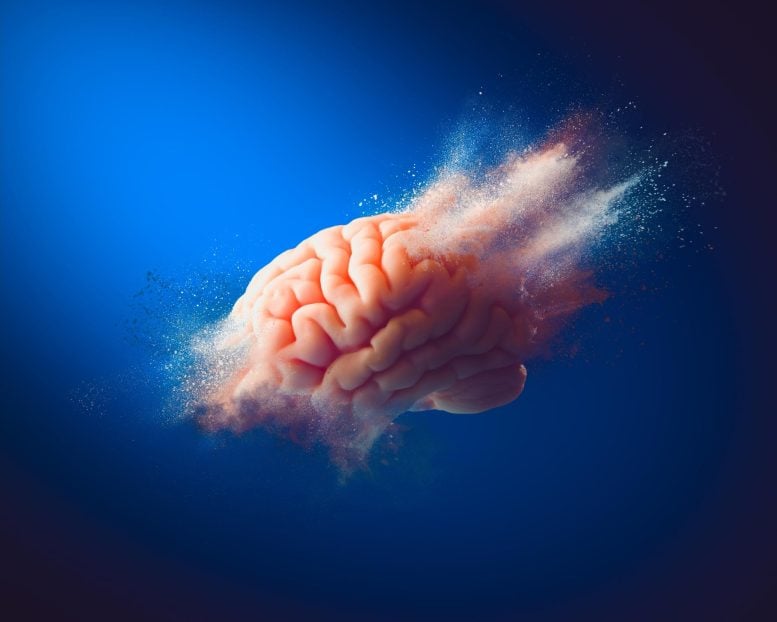
Dementia is a progressive brain disorder that affects a person’s memory, thinking, behavior, and ability to perform daily activities. It is commonly associated with aging but can occur in people as young as 40 years old. The exact causes of dementia are not yet fully understood, but it is believed to result from a combination of genetic, environmental, and lifestyle factors.
A study conducted by a team led by Dr. Tu Yiheng from the Institute of Psychology at the Chinese Academy of Sciences has revealed that individuals suffering from chronic pain in multiple areas of their body have an increased risk of developing dementia and experience a broader and quicker decline in cognitive functions such as memory, executive function, learning, and attention.
The study was recently published in the journal Proceedings of the National Academy of Sciences.
Nearly half of chronic pain patients experience multisite chronic pain, where they feel pain in multiple parts of their body, which significantly impacts their overall health. However, it was previously unclear whether individuals with multisite chronic pain experience exacerbated neurocognitive abnormalities.
In this study, after analyzing the records of 354,943 people in the UK Biobank cohort, the researchers found that the risk of neurocognitive abnormality increased with each additional pain site and was mediated by atrophy in the hippocampus, the part of the brain responsible for memory.
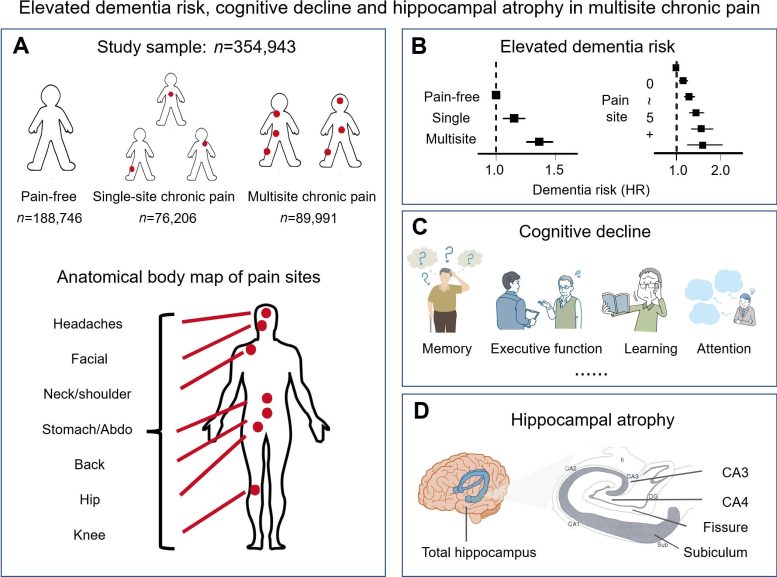
Elevated dementia risk, cognitive decline, and hippocampal atrophy in multisite chronic pain. Credit: Tu Yiheng
Since hippocampal volume decreases with age, the researchers equated the magnitude of the effect of hippocampal atrophy in patients with multisite chronic pain to the effect of aging in healthy people with an average age of 60.
“Multisite chronic pain may lead to up to eight years of accelerated hippocampal aging, an effect that may underlie a series of cognitive burdens,” said Dr. Tu, corresponding author of the study.
The study provides a quantitative understanding of the impact of chronic pain on cognitive function and the risk of dementia, laying an important foundation for future research into the relationship between chronic pain and cognitive impairment.
It also highlights the excessive burden of multisite chronic pain on patients’ cognition and the brain, and the need to address the overlapping nature of pain conditions in both basic research and clinical studies.
Reference: “Elevated dementia risk, cognitive decline, and hippocampal atrophy in multisite chronic pain” by Wenhui Zhao, Lei Zhao, Xiangyu Chang, Xuejing Lu and Yiheng Tu, 21 February 2023, Proceedings of the National Academy of Sciences.
DOI: 10.1073/pnas.2215192120
The study was funded by the STI2030-Major Projects Program, the National Natural Science Foundation of China, and the Scientific Foundation of the Institute of Psychology of CAS, among other sources.

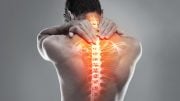

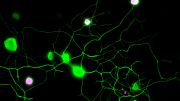

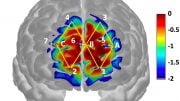



Re: “The study provides a quantitative understanding of the impact of chronic pain on cognitive function and the risk of dementia, laying an important foundation for future research into the relationship between chronic pain and cognitive impairment.”
Again, for others who read multiple articles on one important subject, a high serum level of uric acid (gout) resultant of long-term chronic nearly subclinical non-IgE-mediated food (minimally) allergy reactions aggravated (or not) with officially (FDA in the US) food poisoning (added soy and MSG, minimally) and probably accompanied with an undiagnosed calcium deficiency/osteoporosis is a likely cause of multisite pain in susceptible persons, albeit delayed in younger women by protective estrogen and/or magnesium (https://scitechdaily.com/magnesium-helps-reduce-the-risk-of-dementia-less-age-related-brain-shrinkage/#comment-759585).